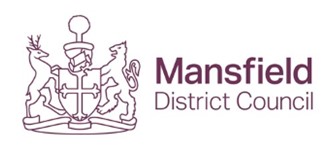PHOTO: Professor Edward Peck CBE DL FAcSS PhD, Vice-Chancellor and President, Nottingham Trent University
Professor Edward Peck CBE, Vice-Chancellor and President, Nottingham Trent University, is a Member of our D2N2 LEP Board and the Chair of our D2N2 LEP People and Skills Advisory Board. We caught up with Edward recently, as part of our ‘Spotlight on our Board’ series, that shines a light on our D2N2 LEP Directors and highlights their views on the exciting developments happening right now in the East Midlands.
Edward said:
“My role as a Board Member for D2N2 LEP is to represent the three universities in the LEP region: the University of Nottingham, the University of Derby and my own institution, Nottingham Trent University (NTU). It’s an important role that rotates between the three Vice-Chancellors, and I have been on the LEP Board since August 2022. The East Midlands Combined County Authority (EMCCA) will catalyse even more connectivity between us. In addition to my role as a Board Member of D2N2 LEP, I am also a member of the Midlands Engine Executive Board and the Nottingham Growth Board.
Inclusion, and the economic imperatives that underpin it, has always been at the forefront of my work. I started my career in the National Health Service and I stayed there for around 20 years. I have always worked in public services as that is where I feel most comfortable and, in particular, I have enormous respect for people who work in the NHS.
For family reasons, I was interested in how the NHS responds to serious mental illness. I specialised in mental health and in transforming mental health services, which included closing down outdated Victorian institutions; my first job involved me in the run-down of Saxondale Hospital, the psychiatric hospital in Ratcliffe on Trent. From the start it was clear to me that enabling service users to articulate their needs – including for paid employment – was central to how we achieved meaningful change.
I left the NHS to join the academic world, becoming Director of the Health Services Management Centre at the University of Birmingham, then Pro Vice-Chancellor of Social Sciences there at Birmingham Business School. I was appointed to my current role of Vice Chancellor at Nottingham Trent University (NTU) in 2014. I decided to move on to academia because universities touch virtually every aspect of civic and economic life, providing the breadth that I enjoy so much in my current role.
Transforming lives
NTU educates over 40,000 students (the fifth largest in the country in terms of student numbers), from a wide range of backgrounds. Our mission at NTU is transforming the lives of people through education, particularly those from less privileged backgrounds, and that purpose is really important to me. I believe wholeheartedly that education changes people’s lives. It has certainly changed my life: I was in the first generation of my family to go to university. As my early career shows, I have always been interested in helping people who are marginalised or disadvantaged; fundamentally, that’s what drives me.
As a major employer in our city of Nottingham and in our region, I believe NTU contributes in a significant manner to the social and civic infrastructure, the cultural vibrancy of the city and, of course, innovation and skills development. Our budget last year was £440 million. We have three campuses in Nottingham – our City, Confetti, and Clifton campuses – and in the county we have Brackenhurst just outside Southwell and our Vision West Notts campus in Mansfield.
It is very important to us to spread the influence and impact of the university into communities where previously we did not have a presence; Mansfield is a good example. We have 700 students at Mansfield, of whom around 60% are local and/or mature students. These demographics are very different to most of our other campuses, which predominantly attract young students from outside the region.
I am confident there will be growth in the number of students who are local, particularly with the Lifelong Learning Entitlement coming on stream in the future as it makes loans for modular study available on the same terms as for undergraduate study. I would anticipate a growth in people taking higher technical qualifications, at Level 4 and Level 5, on a part time basis, with especially more mature students doing so. This is the biggest challenge to the East Midlands economy: the number of residents whose highest qualification is at Level 3, i.e. A-levels or B-Tecs.
I am a massive advocate for the importance of skills and vocational education. Not just to transform people’s lives, but also to transform the capacity and capability of businesses, public services, and charities. I am the proud owner of a Diploma in Personnel Management from the former Bristol Polytechnic, which has now become the University of Western England. This vocational qualification had a major impact in enabling me to pursue the career I wanted to have.
Devolution in the East Midlands
What I appreciate about D2N2 LEP is the ability to directly fund, support, and engage with a whole range of innovative businesses and schemes around the two cities and the two counties. At NTU we were very supportive of the creation of EMCCA and are looking forward to working with our first Mayor, Claire Ward. Historically, our region has not received its fair share of resources, and I am hopeful that our new Combined Authority could provide that laser focus to encourage more investment, more innovation, and more economic activity in the East Midlands.
I want to pay credit to the leaders of the four upper tier authorities who collaborated and worked cohesively together to bring devolution to our region. I would like to see a strategic regional skills plan across all levels of skills, not just focused on the devolved Adult Education Budget. This should be a really dynamic, and detailed, skills plan that combines sector with place, to reflect what employers and residents need to thrive.
Our new Mayor will be in a great position to look at this in a really comprehensive, holistic way and work with our universities, colleges and employers to achieve our shared aims. Claire can look also beyond the immediate devolved powers and budgets to the bigger picture, and act as a convener of organisations and mobiliser of resources behind a common cause, just as the LEP has done. I think that is where an East Midlands Mayor can add most value, championing our region as a really great place to live, work, and learn.”
Professor Edward Peck CBE DL FAcSS PhDVice-Chancellor and President, Nottingham Trent University
Professor Edward Peck joined Nottingham Trent University as Vice-Chancellor in August 2014. The university educates over 40,000 students from a wide range of backgrounds and employs circa 4,500 staff across six campuses. Previously, he worked at the University of Birmingham as Pro Vice-Chancellor and Head of the College of Social Sciences following his early career being spent in the NHS. His academic interests encompass public policy and organisational leadership; he is a Fellow of the UK Academy of Social Sciences.
Professor Peck is Deputy Chair of the Universities and Colleges Admissions Service (UCAS) and a former Board member of both UUK and Universities and Colleges Employers Association (UCEA). He was a member of the UK Government’s Post-18 Fees and Funding – aka Augar – Review Panel and is still very engaged with the implementation of the Lifelong Learning Entitlement. In May 2022 he was appointed as the Department for Education’s initial Higher Education Student Support Champion and subsequently Chair of the Higher Education Mental Health Implementation Taskforce in June 2023.
In July 2020 he was appointed Deputy Lieutenant of Nottinghamshire and was made a Commander of the British Empire (CBE) in the 2021 New Year Honours List for Services to Higher Education.
D2N2 Local Enterprise Partnership (LEP) covers the Derby, Derbyshire, Nottingham and Nottinghamshire region, convening the businesses, universities, colleges and local authorities in our region to drive low carbon, economic growth and productivity, skills & careers, inclusion and delivery excellence. The D2N2 LEP team and functions will transition into the East Midlands Combined County Authority during 2024.
For media enquiries, contact:
Nicola Swaney
Head of External Affairs, D2N2 LEP
Nicola.Swaney@d2n2lep.org





























